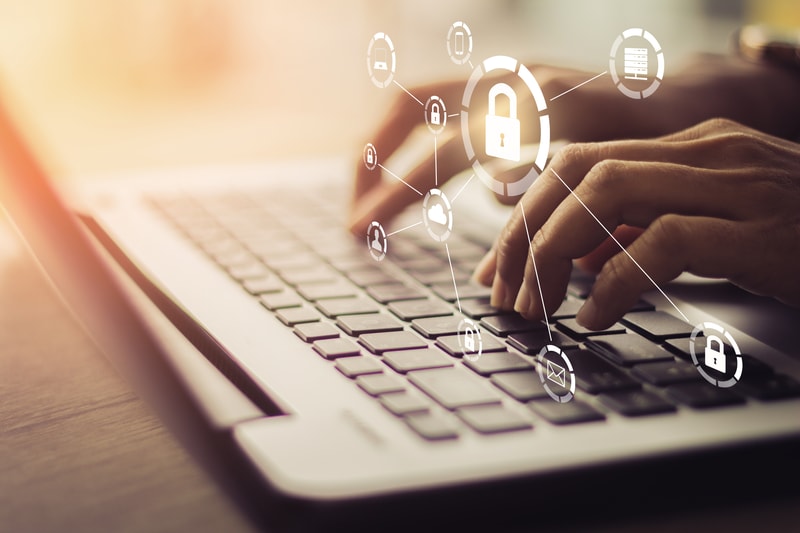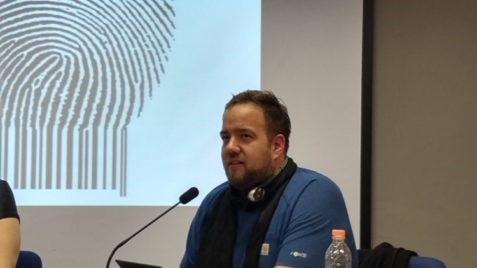Limits on data: when the digital era invades privacy
 © Shutterstock
© Shutterstock
In the digital era, an unparalleled historic loss of privacy has come to the forefront. At a rampant speed, personal data and information have hit the internet, and the watchful eyes of data protection have gone out of focus. Worldwide, many actions and laws are arising to put the brakes on the invasion that has had no limits imposed upon it. Progress is being made, but there is still a lot to do.
Author, politician, and activist Malte Spitz got the world’s attention after he sued Deutsche Telekom, accusing it of obtaining his personal information without his authorization. In the end, he received a report that proved his life was traced almost minute by minute for six months. Since then, Spitz has denounced the hacking of his data by the Government and by private companies, while defending the citizen’s right to self-determination in the digital era. This thinking underlies the creation of laws that protect citizen’s rights and privacy, as well as freedom of the press and of expression, which must go beyond national borders.
In May, at the invitation of the Heinrich Böll Foundation, Malte Spitz was in Brazil to take part in a series of activities regarding this issue in São Paulo and Rio de Janeiro. In an interview granted to the DWIH São Paulo, Spitz presented more aspects of this subject, emphasizing the progress already achieved, such as the General Data Protection Regulation (GDPR) of the European Union and the negotiations regarding the approval of Brazil’s Civil Standards for the Internet, as well as the loopholes that still lack security, with respect to both individual and societal privacy.

What is the role currently played by digitalization in our lives?
Digitalization is radically changing a considerable number of aspects of our lives, whether at home or at work, as well as in the sciences. Many people benefit from the new opportunities for communication and partnerships.
How can the digital universe (especially the social media) influence our personal rights? And how can we deal better with this phenomenon?
At the present time, we see large platforms, like Facebook or YouTube gathering countless pieces of personal information, blending them into broad-based profiles of our interests and habits. On the other hand, especially Facebook and Twitter are unable to protect our personal rights from defamation and the expression of hateful attitudes. All of the main platforms commonly make every effort to make the highest possible profit, without making a determined effort against disinformation or the dissemination of conspiracy theories. As individual users, we still need to acquire a cultural approach to public communication based on digital technology. We are currently more focused on the negative side.
How can we enjoy a normal and safe life in this modern and digitalized world?
We need active regulations to curb excesses, preferably at the international level. Individuals also must have more options for using simple measures, like cryptography, to ensure better protection. We need an approach to digitalization that is focused on the users and we, as society, must define what is considered to be a good life in the digital era. We cannot leave this decision to the companies.
What are your impressions of the events held here in Brazil? Could you mention what you feel were the most important points?
It was a very exciting exchange, especially with the participation of Brazilian civil society and many agents in the scientific area. The discussion of the digital society was conducted within a broad scope, and the points of view regarding many issues seemed to me to be quite similar to those expressed in Germany. Particularly the applications of the regulations already in existence for data protection, as well as the creation of new rules, were topics that played a significant role in the events.
In your opinion, what is the role played by the General Data Protection Regulation (GDPR) in the EU and what is your prediction for the future with respect to this issue in the EU, as well as worldwide?
The General Data Protection Regulation (GDPR) became the standard for strengthening data protection in Europe and we are seeing how these rules also have an ever-increasing global impact. International companies are increasingly aligning their data processing with the GDPR base. Now it is necessary to expand the application and strengthening of individual rights outside of the EU.
In your opinion, how is this issue being treated in Brazil?
Data protection is becoming increasingly important in Brazil and the new law can make a significant contribution to it. However, public agencies must also be included, as well as broadly and similarly controlled. That is, the approval of the Civil Standard for Internet in Brazil is a positive thing. It is encouraging that the states carry on this discussion and make very clear their positions regarding a citizen’s digital rights. Even if it is not perfect, and needs a number of adjustments, the Brazilian Standard is an excellent beginning.
by Ana Paula Katz Calegari
